Money recognition Money Worksheets for Ages 4-6
5 filtered results
-
From - To
Introduce your child to the basics of finance with our engaging "Money Recognition Money Worksheets for Ages 4-6". Specially designed for young learners, these fun and colorful worksheets make it easy for children to begin understanding the value of money. From identifying coins to simple counting activities, each worksheet builds foundational math skills and visual recognition. Perfect for home or classroom use, our activities aim to create a solid financial literacy foundation while keeping kids entertained. Foster early learning and social wisdom—explore our printable worksheets today and watch your child's confidence with money grow!
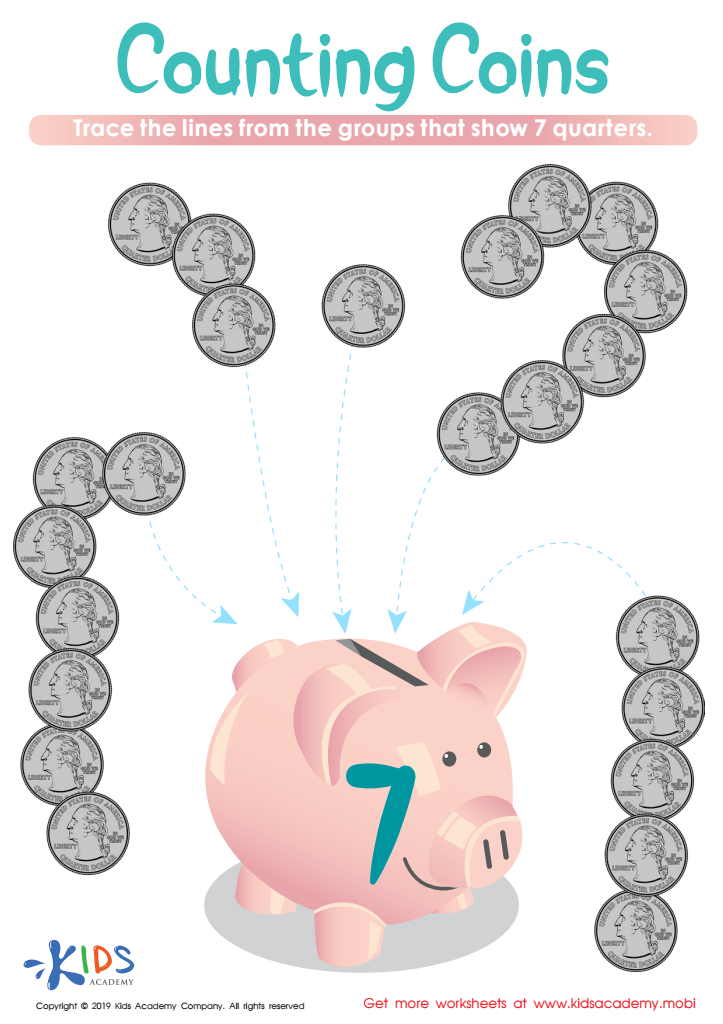

Counting Coins Worksheet
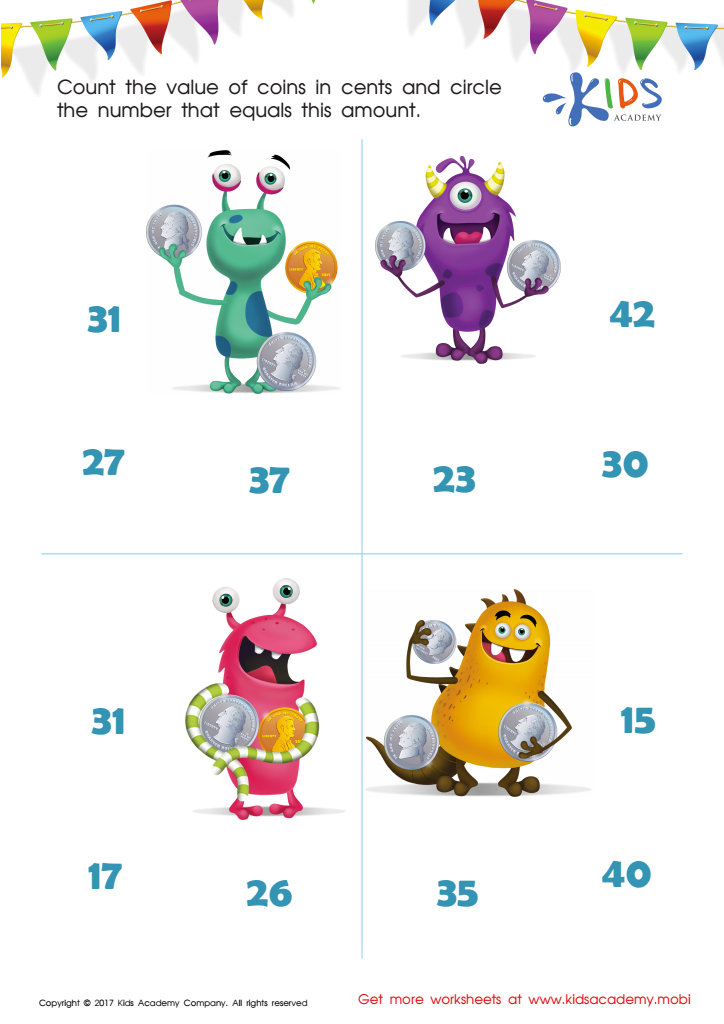

How Many Coins Money Worksheet
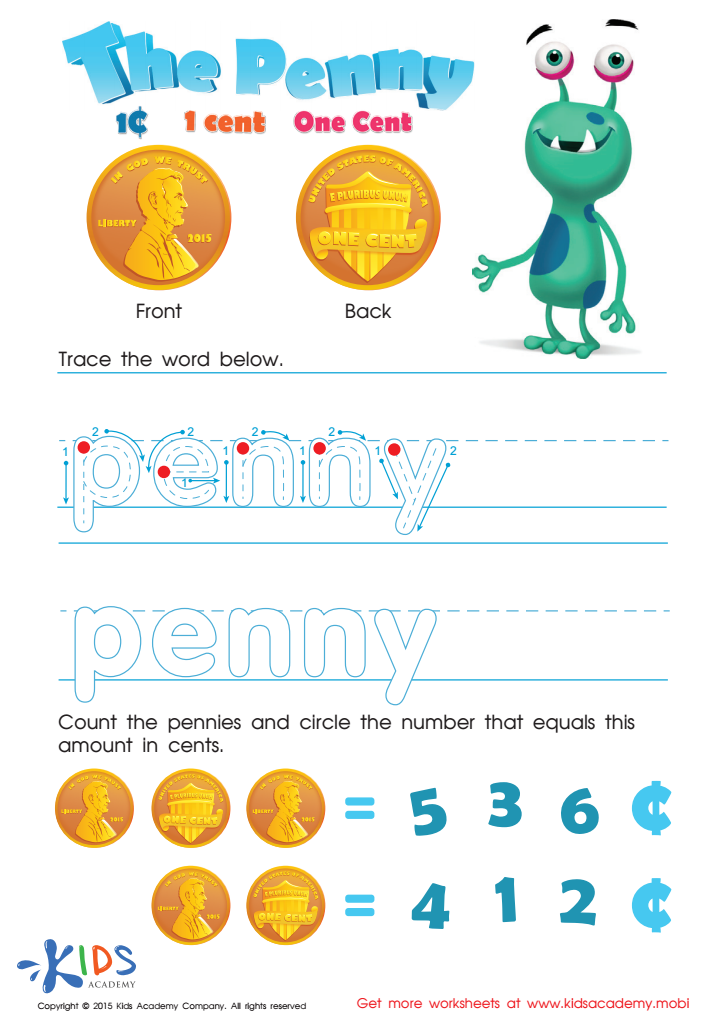

One Cent or the Penny Money Worksheet
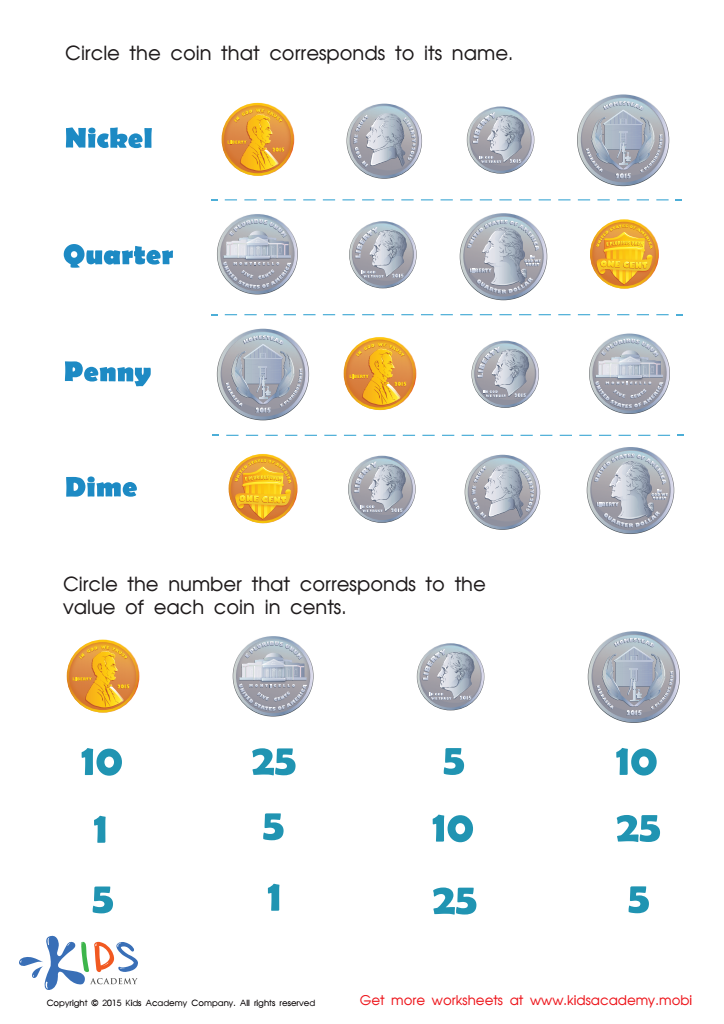

Coin Names and Values Money Worksheet
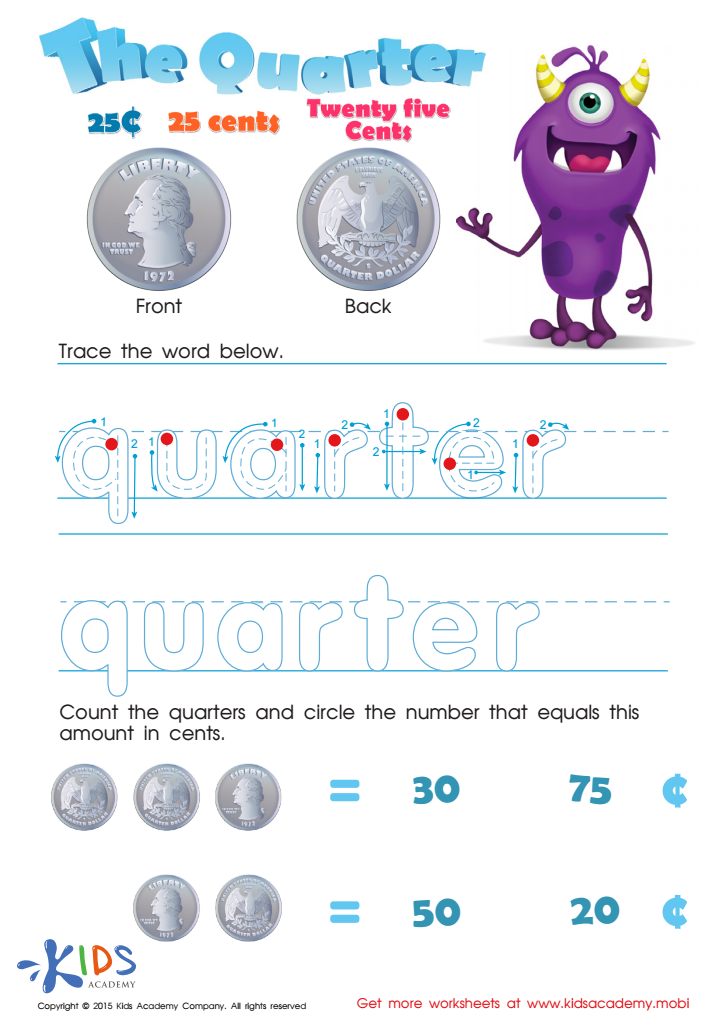

Twenty Five Cents or the Quarter Money Worksheet
Teaching money recognition to children ages 4-6 is invaluable as it lays a solid foundation for future financial literacy and practical life skills. At this young age, children are highly receptive to learning new concepts through play and hands-on activities. Recognizing coins and bills, understanding their values, and learning how to sum simple amounts nurture cognitive and numeracy skills critical for their academic development.
Moreover, early exposure to money helps demystify a crucial life skill. It introduces children to the notion of value, savings, and prudence in spending, which cultivate mindfulness about resources. Children equipped with these basic financial skills can make informed choices and develop a healthier relationship with money as they grow.
For parents and teachers, making money recognition an intentional part of early education promotes an environment where children see real-world relevance in what they learn. Simple activities such as sorting coins, playing store, or identifying prices during grocery shopping can make learning both fun and effective. As children advance, they’re better prepared for more complex financial concepts, reducing anxiety and fostering independence.
In short, understanding money at an early age is not just about handling coins and bills but cultivating essential life skills that promote confidence, responsibility, and sound financial practices.
 Assign to My Students
Assign to My Students
















